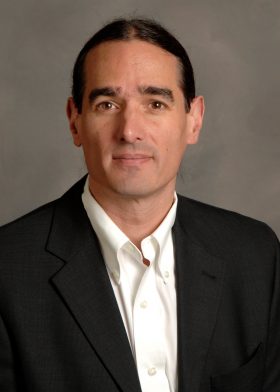Professor Pranab Das writes in regional newspapers about the missed opportunity for reasoned debates and conversations on the nature of human life in the wake of the U.S. Supreme Court's recent decision on Hobby Lobby, insurance and birth control.
The following column appeared recently in the Winston-Salem Journal, the Burlington (N.C.) Times-News, the Annapolis (Md.) Capital and the Greenville (N.C.) Daily Reflector via the Elon University Writers Syndicate. Viewpoints are those of the author and not Elon University.
*****

By Pranab Das – daspra@elon.edu
Pundits are buzzing over Hobby Lobby but they’re more eager to enflame their partisans than to seize the opportunity for reasoned engagement between science and religion. What a shame.
In a case that hinges on profound questions like the definition of the conception of human beings, science and religion have much to discuss. Rather than shout slogans, we should arrive with humility and mutual respect.
Let’s assume that our conversation partners are thoughtful and ethical people who share a sense of awe at the immense complexity of the universe. With a bit of effort, we can come together to learn from one another, to strengthen our communities and deepen our understanding.
The recent Hobby Lobby case decided by the U.S. Supreme Court revolves around one particular idea: life begins at conception. While this belief may not be shared by most people, it is a sincere religious conviction and, as such is entitled to the full weight of religious liberty and respect.
Science can help inform theology here not by challenging or undermining belief but by offering facts so that believers themselves can proceed to refine their positions. A good starting point might be a close look at the earliest beginnings of human life, the time when a soul might enter the biological cells that go on to become a human.
Biology has revealed many startling facts about the long road that leads from sex to reproduction. Many days pass, for example, before a sperm and egg cell get together. Their success depends on profoundly complex processes in the female body and an incredible journey by the sperm. Contraception disrupts these processes in many ways and it takes science to help us differentiate between them.
Once those differences are understood, the moral and ethical questions become clearer even though the answers will surely remain controversial.
Interesting issues arise even before the sperm and egg merge. For example, ovulation is affected by breast feeding. It may be possible to ‘trick’ the body into thinking it is breast feeding to disrupt that process. Sperm play different roles and not all are suited to completing the journey. It might be possible to change sperm themselves to prevent pregnancy. And the vaginal canal, far from being a simple channel, is a thriving microscopic ecosystem where microbes cleanse and facilitate fertilization. Maybe we could alter that ecosystem to make it a hostile place.
Each of these options would likely be all right for believers who focus on conception but might raise alarm for others.
Even when the sperm finally fertilizes the egg, tremendous challenges await. A raging chemical cascade first alters their genetic makeup, creating a wholly new cell. Most of the time this cascade fails. According to a Stanford University study only about 38 percent of fertilized eggs succeed in reduplicating – the transformation often fails to fully take hold and the mother’s genetics overwhelm the new. This process takes hours and days and most of the time it fails.
Science should remain entirely neutral on the theological questions this raises but believers must, with clear eyes, attend to the results. If fertilization most often fails to create successful genetic duplication, where is the best point to locate the coming into being of the soul? If the process goes on for days, is there one unique moment in time for that special event?
Following successful genetic redoubling, a small cluster of cells takes more days to make its way to the uterus and sometimes succeeds in embedding itself in the mother’s womb. Again, the process of negotiation between genetically novel cells and maternal physiology is challenging and not always successful. And the continuing relationship unfolds with many complexities through the weeks and months of pregnancy.
At each step, science can offer physical details of the beings in question (how many cells, what biochemical changes they are going through, etc.) but it must never overstep and intrude on believers’ choices about how to value those beings.
The Supreme Court ruled that the religious beliefs of Hobby Lobby’s owners are well formed and that their concerns about contraception are sincere. Over time, science will continue to clarify exactly what each kind of contraceptive does and how it derails reproduction. Believers must scrutinize these results carefully and form reasoned conclusions based on their faith and the best available science. And nonbelievers must acknowledge such reasoned conclusions with humility.
If both groups see the other as attentive and respectful, we can agree to disagree in a productive, healthy way. That is, after all, the essence of life in a democratic society.
Pranab Das is a professor of physics on research sabbatical from Elon University to work on emergence in science and religion with support from the John Templeton Foundation.
*****
Elon University faculty with an interest in sharing their expertise with wider audiences are encouraged to contact Eric Townsend (etownsend4@elon.edu) in the Office of University Communications should they like assistance with prospective newspaper op/ed submissions.


